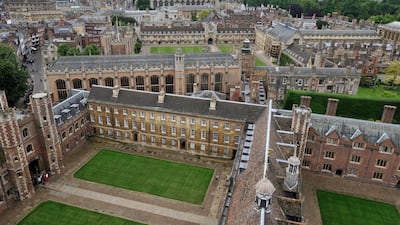Immigrants to Britain are more likely to hold a higher education qualification than the wider population, with Nigerians in particular more likely to have a degree, official data has shown.
A publication by the Office for National Statistics showed that almost 44 per cent of adult residents born outside the UK have some form of qualification, compared with about 31 per cent of UK-born residents.
The figures were released by the ONS using self-reported data from the 2021 census covering England and Wales.
Almost a fifth of adult residents in England and Wales were born outside the UK.
Nigerian immigrants have a particularly high level of educational achievement, with 66 per cent having received a qualification of any kind. This outpaces Britain's other large immigrant groups, including Indians and South Africans.
Overall, there are more than 250,000 Nigerians and more than 850,000 Indians living in England and Wales, according to the census.
For residents born in Pakistan and Bangladesh, the percentage holding higher education qualifications was lower than for the UK-born population, at about 29 per cent and 24 per cent, respectively.
The data showed that, on average, immigrants are usually significantly younger than the rest of the population and are therefore more likely to be university or college educated.
Adjusting for age between UK-born and foreign-born groups narrows the education gap by about a third, but “doesn’t fully close it”, according to the ONS's Glenn Garrett.
“It’s not possible to fully explain the trend, but as work and study are common reasons for migration, this may contribute to migrants being more likely to be highly qualified,” he told The National.
Data showed that Taiwanese immigrants were the group with the highest level of education at 80 per cent, with Mexicans and South Koreans the next most educated groups – but these groups are small overall.
Immigrants from the Gulf were also more likely to have a qualification. Almost 58 per cent of those from the UAE have a qualification, while that number rises to 62 per cent for those from Oman and 63.9 per cent for those from Saudi Arabia.
The ONS data also showed that the foreign-born children of immigrants from lower-income countries were more educated than their parents.
The report said this was particularly apparent in many countries where asylum claims are common, such as Afghanistan, Eritrea, Somalia and Iraq.
“In some cases, we can see migrants who arrived at a young age are much more highly qualified than those from the same country who arrived when they were older,” the report says.
“This suggests the younger groups have benefitted from social mobility.”
Towns and cities have a particularly high concentration of educated immigrants, with Cambridge, York and London and its surrounding areas with a high number of educated immigrants.
But in areas such as Blackburn and Darwen, Oldham and Bradford, immigrants were much less likely to have a qualification from a higher education institution, data showed.


